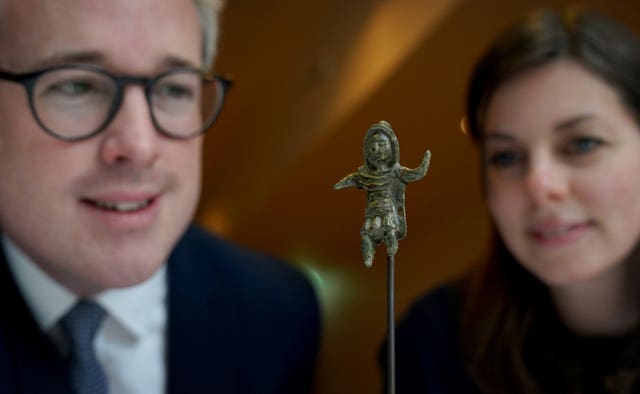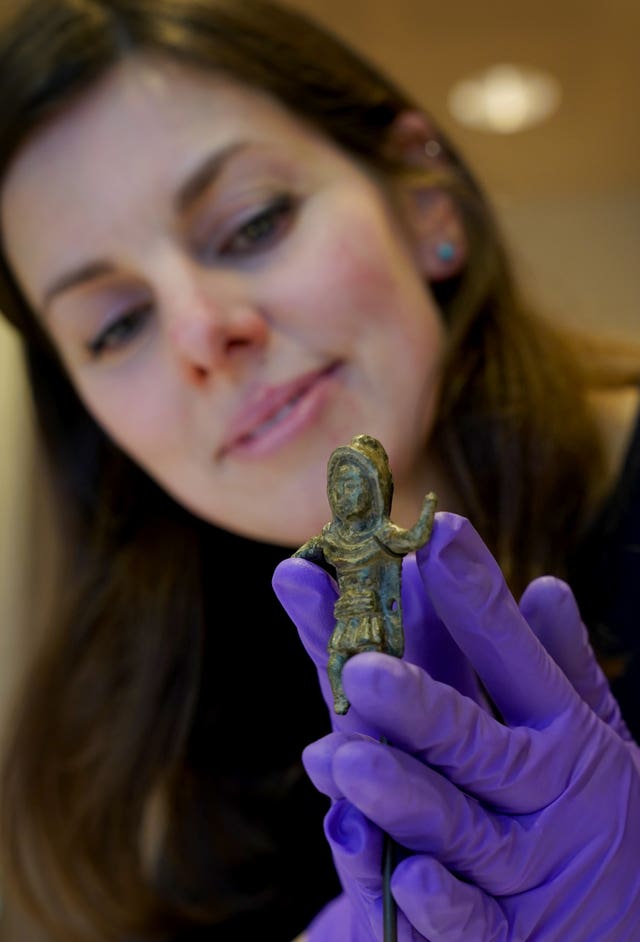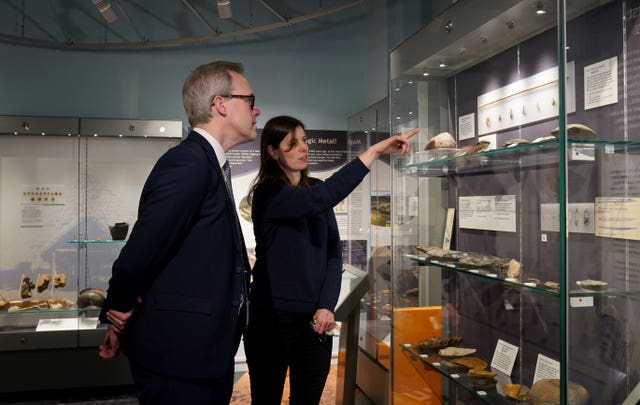A surge in the number of detectorists unearthing historical artefacts has prompted a bid to broaden the legal definition of treasure to help museums to acquire important items.
Heritage Minister Lord Parkinson said some items have been lost into private ownership, rather than displayed publicly in museums, due to the current wording of the Treasure Act 1996.
Under the current definition, an item is treasure if it is at least 300 years old and made at least in part of precious metal, like gold or silver, or part of a hoard.
This will be amended to cover exceptional finds of at least 200 years old, regardless of the type of metal they are made of.

Lord Parkinson said the Treasure Act has “saved around 6,000 objects which have been shared with museums, more than 220 museums around the country”.
“But, at the moment, the definition of treasure is very specific,” he said.
“An item has to be more than 300 years old, it has to be made of a precious metal or part of a hoard.

“We’re proposing to change the law to make the definition something that is more than 200 years old, to say it can be made of any type of metal but also bringing in a new test of significance.
“So, to say if this is an item which is significant to a part of local, national or regional history, or if it’s connected with a particular individual or event, then it can be classed as treasure too and it can be shared with the public in a museum.”
He cited the Crosby Garrett Roman cavalry helmet, discovered near Penrith in Cumbria, as an example of an artefact sold to a private bidder as it did not meet the current definition of treasure.
“We want those sort of items to be shared.”
He said there had been a “big increase in the number of people being metal detectorists”.
“Most of the finds of treasure are by detectorists, so we’re seeing more objects being discovered and we’re seeing more examples of things that don’t currently meet the definition being lost or being at risk of being lost to the public,” said Lord Parkinson.

“Quite often they end up in museums very close to where they were discovered and that’s particularly important because it helps shed light on local history for people.”
Chelmsford Museum in Essex has a Roman figurine in its collection that does not meet the current definition of treasure, but was saved by another mechanism.
Lord Parkinson said the copper alloy piece, discovered in Roxwell, Essex, wears a hooded cloak known as a Birrus Britannicus that people wore in Roman Britain.
“It tells you about the weather at the time, it tells you about fashion, it tells you about the exports from Britain into the Roman Empire,” he said.
“These sorts of objects should be shared with people in museums so they can inspire future generations.”
Sarah Harvey, a curator at Chelmsford Museum, said that the Roman figurine is made of a copper alloy so it did not meet the current definition of treasure.
She said that the finder, a detectorist, was planning to sell it abroad, and the museum had to go through “quite a lot of administrative steps to keep it in this country”.
“With this new definition of treasure we won’t have to go through all of those steps, we would have first rights to acquire that sort of item,” she said.
Ms Harvey said it is not known what the figurine was used for, but it may have been a pendant or the top of a knife.
Lord Parkinson said that a statutory instrument will be laid in Parliament on Monday and, if both Houses of Parliament agree, the new definition will come in.






